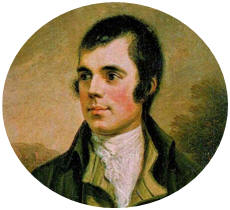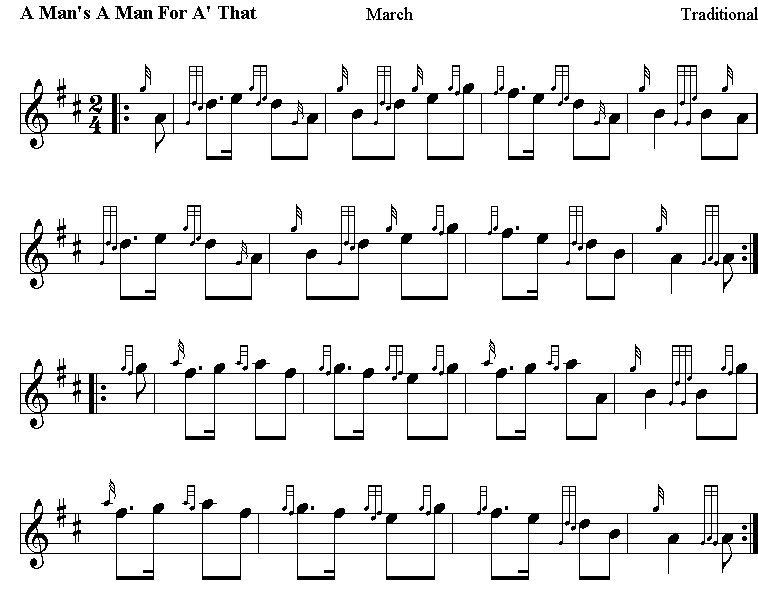He is regarded as a pioneer of the Romantic movement and after his death became a great source of inspiration to the founders of both liberalism and socialism. A cultural icon in Scotland and among the Scottish Diaspora around the world, celebration of his life and work became almost a national charismatic cult during the 19th and 20th centuries, and his influence has long been strong on Scottish literature.
As well as making original compositions, Burns also collected folk songs from across Scotland, often revising or adapting them. His poem (and song) Auld Lang Syne is often sung at Hogmanay (the last day of the year), and Scots Wha Hae served for a long time as an unofficial national anthem of the country. Other poems and songs of Burns that remain well-known across the world today, include A Red, Red Rose, To a Louse, To a Mouse, The Battle of Sherramuir, Tam o' Shanter and Ae Fond Kiss.
Robert Burns sent this to George Thompson of Edinburgh in 1795. It is also known as Is There Honest Poverty and For A' That and A' That. According to The Robert Burns Songbook the tune was based on Lady Macintosh's Reel, from Bremner's "Reels" (1759). Burns had used the tune earlier for Tho' Women's Minds. Prior to that Burns had used it for the melody for the song I am a Bard of no regard.
The song was sung the day of the reopening of the Scottish Parliament.


